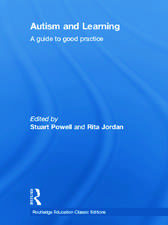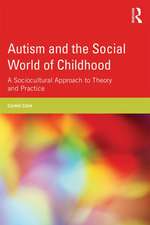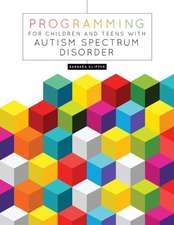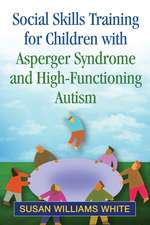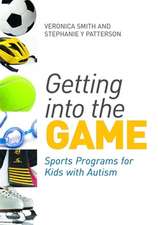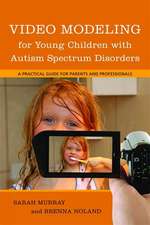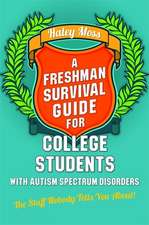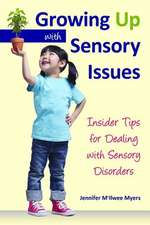Parenting ASD Teens: A Guide to Making It Up as You Go
Autor Andrew Schlegelmilchen Limba Engleză Paperback – 27 apr 2014
Preț: 108.56 lei
Preț vechi: 130.55 lei
-17% Nou
Puncte Express: 163
Preț estimativ în valută:
20.77€ • 21.75$ • 17.19£
20.77€ • 21.75$ • 17.19£
Carte disponibilă
Livrare economică 17-31 martie
Preluare comenzi: 021 569.72.76
Specificații
ISBN-13: 9781849059756
ISBN-10: 1849059756
Pagini: 220
Dimensiuni: 150 x 226 x 20 mm
Greutate: 0.34 kg
Editura: Jessica Kingsley Publishers Ltd
Locul publicării:London, United Kingdom
ISBN-10: 1849059756
Pagini: 220
Dimensiuni: 150 x 226 x 20 mm
Greutate: 0.34 kg
Editura: Jessica Kingsley Publishers Ltd
Locul publicării:London, United Kingdom
Notă biografică
Andrew Schlegelmilch, PhD, is a clinical psychologist and consultant in private practice who specializes in working with children and teens with Autism Spectrum Disorder and their families. He previously worked as Head Psychologist at Orion Academy in Moraga, California, a college preparatory high school for adolescents with Asperger's Syndrome, Non-verbal Learning Disability, and other related neurocognitive disorders. He has completed a post-doctoral fellowship in Applewood Centers, Cleveland, Ohio, an urban community mental health center where he did individual and group therapy and diagnostic assessments. He lives in San Francisco, California.
Descriere
This straight-talking and accessible guide for parents of teenagers on the autism spectrum provides down-to-earth advice on coping with the more difficult issues that can arise at home and school during the adolescent years. Andrew Schlegelmilch discusses common parenting challenges and offers advice drawn from his extensive experience working with teenagers with autism and their families as Head Psychologist at a college preparatory school. He offers parents professional guidance on what to do about falling grades, how to handle adolescent tantrums, how to talk about sex and sexuality with your child, how to help your child with peer relationships, how to keep your child safe online, and what to do if you suspect your child has mental health problems. Integral to the discussion is how to set realistic expectations and encourage independence in ways that work for both your child with autism and the rest of the family, as well as how to make the best use of the help professionals can offer.


